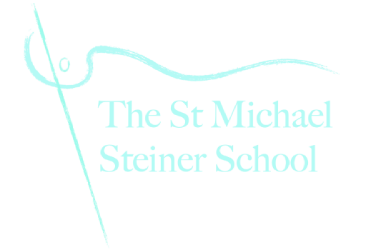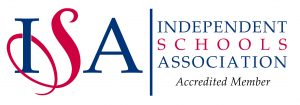When you read our website and the information we publish you will become aware that we look at education and child development in an unconventional way; you will come across ideas about how to educate children that you won’t find being expressed by other schools. This introduction is provided in order to help you understand how we work.
This is what you need to know at the beginning:
- The terms ‘Steiner Education’ and ‘Waldorf Education’, are synonymous.
- We do not have a head teacher or principal. The school is run by the teachers, and their management of the school is monitored, and decisions ratified, by a group of trustees with a deep knowledge of Waldorf Education and other relevant experience.
- We do not follow the National Curriculum, nor do we have a set curriculum of our own. As an independent school, we are allowed by the DfE to teach our own curriculum, as long as it is effective and parents are well informed and supportive. This is the aim of the information on this website and in our directories. (see Lower & Middle School Curriculum Directory and High School Course Directory)
- We do not do SATS, GCSEs or A-Levels. There is continuous formative assessment, but no formal testing below Class 10. In Classes 10, 11 and 12 we offer certification through the Certificate of Steiner Education (see the High School page).
- Our students apply to university through UCAS in the usual way. Our graduates so far have 100% success rate in gaining places at the universities of their choice to study a wide range of subjects.
- Like every other independent school in the UK, we are required to meet all of the Independent Schools Standards (ISS).
- The children stay in Kindergarten until they are in their seventh year; they turn seven in Class 1. Consequently, the numbering of classes in our school is different: Class 1 is mainstream Year 2; Class 2 is Year 3, etc. Students leave school at the end of Class 12, when they are 18.
- There is no formal teaching in the Kindergarten. The children learn through activity, free play, imitation and gentle guidance. In 2008, the school applied to the DfE, and was granted, exemptions from several aspects of the Early Years Foundation Stage (EYFS) requirements, on the basis that we work out of a philosophy that sees formal, intellectual teaching as inappropriate for very young children.
- Every year, we publish two curriculum documents: the Lower and Middle School Curriculum; and the High School Course Directory. These are written by the teachers of individual classes and subjects and are a review of the past year. They serve as an indication of the topics, approaches and developments that might be expected at each age, but it is a central tenet of our education that teachers have the freedom to design the curriculum for their own classes, based on the individual children’s stage of development, needs and interests.
- Our teachers are dedicated professionals who have a collective duty to ensure that the quality of education offered by the school is consistently high. In order to do this, we first ensure that we hire excellent teachers who are trained in and have a deep understanding of the principles behind Waldorf Education as well as the skills to put them into practice.
- We have a rigorous mentoring system and an open door policy that means our classrooms and our planning and assessment are open to our colleagues, who will cast a critical eye over our work – and the children’s – and offer observations, insights and advice.
- We have trained and experienced Learning Support teachers (also waldorf trained) on staff, who help to identify difficulties and provide support for children and teachers. We also call on expert practitioners when necessary.
- All teachers are available to meet on request with parents to discuss their children’s progress or any problems they may be experiencing. Class parents’ meetings are scheduled each term.
- We have a weekly study group for parents, the purpose of which is to provide in-depth background study of Waldorf Education, to answer any questions parents have about their children’s education, and to ensure that they can support our work through a thorough understanding of what we do, how it differs from what other schools do and why we do it this way.
The Origins of Waldorf Education
After the unprecedented horror of the first World War, many people hoped for and believed in the possibility of a better future. For them, it was the whole structure of society, its outdated and decadent forms and traditions, that had led to this catastrophe, and something new was urgently needed. Among these hopeful and determined people were the industrialist, Emil Molt, owner of the Waldorf Astoria cigarette factory in Stuttgart, and his friend, philosopher and scientist, Rudolf Steiner.
Steiner had written many books and given lectures about the need for social reform. He felt that, if education could enable people to think clearly, to take a deep interest in the world and to take action wherever they saw a need for it, then this would change the world. As well as intellectual knowledge, he said, people in the future would need to be able to do many things – they would need many skills – and, perhaps even more importantly, they would need to be able to recognise what needed to be done and be able to take the initiative themselves.
Molt asked Steiner to found a school out of these ideas for the children of the workers in his factory. Steiner agreed, took twelve teachers through an intensive study of child development, and ‘The Waldorf School’ opened in Stuttgart September 1919.
Steiner was invited to speak all over Europe about this new form of education, and teachers and educationalists were inspired to open ‘Waldorf’ schools. Steiner had lectured in England before the war and he was invited back in 1922 to speak about the founding of a Waldorf School in England.
The first Waldorf – or Steiner – school in the English speaking world opened in south London in 1925. There are now around 1000 Waldorf schools worldwide. The St Michael Steiner School opened in Wandsworth in 2001 and moved to Hanworth Park in 2012.
“The Waldorf School is not an ‘alternative school’ like so many others, founded on the belief that it will correct all errors in education. It is founded on the idea that the best principles and the best will in this field can come into effect only if the teacher understands human nature. However, this understanding is not possible without developing an active interest in all of human social life. Through a teacher who understands the soul, who understands people, the totality of social life affects the new generation struggling into life. People will emerge from this school fully prepared for life.” RUDOLF STEINER


